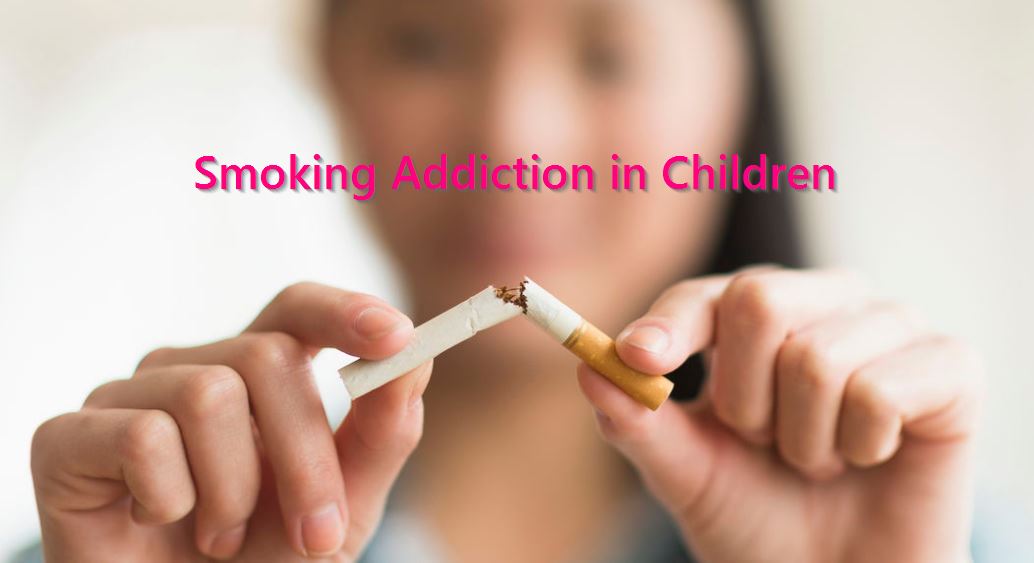If you are facing Smoking Addiction in Children, Learn how to overcome it. later it can be harmful and my may need to find the Best Ways of Reducing Stress .
Children who smoke cigarettes throughout their formative years face serious health issues, such as a rise in the frequency and intensity of respiratory ailments, a decline in physical fitness, and possible consequences on lung development and function.
What Problems Can Smoking Cause?
Inhaled, the smoke from burning tobacco contains a variety of toxic substances that can impair every system in the body, including carbon monoxide, lead, and arsenic. And others who are in close proximity to the smoker are also impacted by this.
Nicotine is one substance that causes harm in a unique way. After a few days of usage, it turns a person becomes an addict. As addictive as cocaine or heroin, nicotine may really be found in tobacco products. It’s difficult to quit smoking once one gets into it.
Common health issues associated with Smoking Addiction in Children
- cardiac conditions
- Lung conditions such as asthma, pneumonia, chronic obstructive pulmonary disease (COPD) Stroke many cancers kinds Ulcers Gum disease, which can cause teeth to fall out Eye conditions that can even result in blindness
- diabetes skin conditions including psoriasis and many wrinkles joint issues like arthritis
- issues with fertility (making conception more difficult)
- issues that might harm the unborn child’s health thinner bones, which could result in fractures
Smoking Addiction in Children or When people begin smoking at an early age, there are additional considerations. Nicotine first damages the growing brain. Children who smoke may find it more difficult to focus or pick up new information.
Smoking Addiction in Children is also more prone than adults to develop an addiction very rapidly. In young smokers, nicotine use is also associated with anxiety and sadness. Furthermore, a number of studies indicate that adolescent smokers have a higher propensity to experiment with substances including heroin, cocaine, marijuana, and alcohol.
Hookahs (water pipes) and e-cigarettes aren’t much better. They might be loaded with dangerous substances like nicotine. Health professionals note that vapers can suffer fatalities as well as significant lung damage. It is not safe to use smokeless tobacco, which includes items that may be chewed, sucked on, or even breathed via the nose. Smokeless tobacco can cause cancer heart disease, and other health issues.
How Can Parents Talk to Kids About Smoking?
Young people may be tempted to smoke for a variety of reasons, including the desire to seem tough, shed weight, appear mature, or feel autonomous.
To prevent Smoking Addiction in Children from sampling cigarettes and developing a cigarette addiction, parents can resist those attractions. Remember these pointers:
- Make it clear in your guidelines that smoking is not permitted within your home. Smoking is hazardous for everyone’s health and makes them smell, look, and feel horrible.
- Talk to children about smoking without instilling fear of punishment or condemnation. Prove that you respect the thoughts and opinions of your children.
- Find out what appeals to or bothers youngsters about smoking. Listen to others patiently.
- Pay more attention to what children accomplish well than poorly. A child’s strongest defense against peer pressure is self-confidence.
- Talk about coping strategies for peer pressure to smoke. Your youngster could be okay if they simply say no. However, you should also include additional comments, such “I detest how it makes me look” or “It will make my clothes and breath smell bad.” Children should feel free to leave friends who don’t accept their decision to abstain from smoking if necessary.
Can I Help My Child Who Smokes?
Certain youngsters attempt smoking even after they are made fully aware of the health concerns. If it occurs, try not to lose your temper. Rather, concentrate on speaking with your child if you are planning to control Smoking Addiction in Children
Avoiding Smoking Addiction in Children Tips
- Find out what makes smoking appealing to your child and have an open discussion about it.
- Children frequently lack the awareness of how their present actions may impact their health in the future. Thus, discuss the issues that arose earlier: breathlessness, foul breath, yellow teeth, and clothing that smells. They also have less money to spend on the activities they enjoy.
- Adhere to the smoking ban you’ve established and keep your kids out of the house while they smoke.
- Ask your youngster to prove it to you by giving up completely for a week if they respond, “I can quit anytime I want.”
- Try not to nag and avoid lecturing. It is ultimately up to the smoker to decide to give up.
When the youngster is prepared to try:
- assist in creating a quit strategy. Applaud their choice to step down.
- Consider the benefits of quitting: being free from addiction, having more physical fitness, doing better in sports, and looking better.
- Urge yourself to see your doctor; they may have treatment plans and can be helpful.
- When Parents Smoke: Children pick up on discrepancies between their parents’ actions and words easily. Furthermore, the majority of children state that they most desire to become parents when they grow up.
In the event that you smoke:
First of all, acknowledge that you were wrong to begin smoking. Say that you wouldn’t start if you had to do it all over again.
Secondly, give up. It’s not easy, and it can require some attempts as well as additional assistance from a program or support group. However, your children will get inspiration from witnessing you kick your tobacco habit.
Conclusion
If your child is addicted to Smoking and you want to help your child in de-addiction. You can choose online counselling platform like TalktoAngel that have highly experienced child psychologist who can help your child overcome an addiction problem
Smoking Addiction in Children can be avoided for several health benefits and social problems
